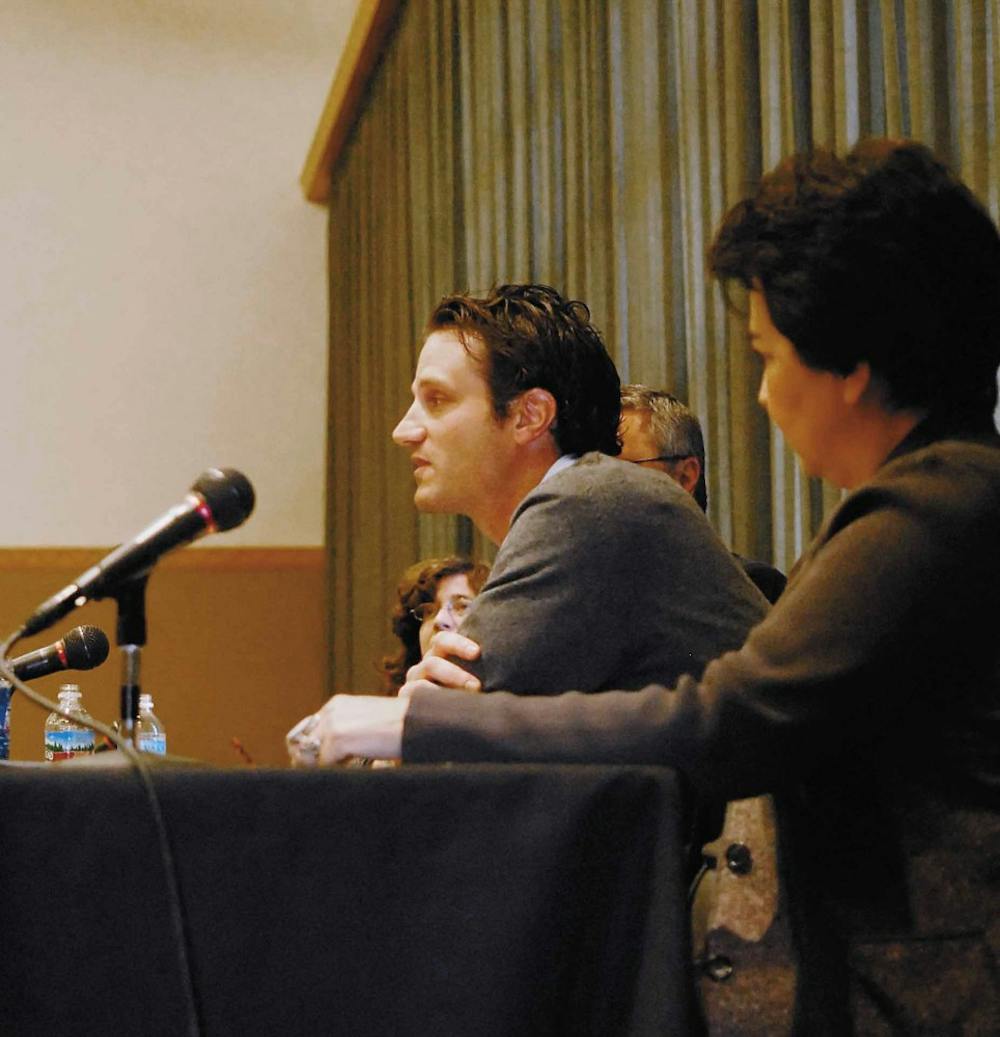by Anna Hampton
Daily Lobo
Lonna Atkeson said racial diversity is one of the effects of the November elections.
"2006 represents a really significant shift in American politics," she said. "Participants running on the Democratic side are de-racialized."
Atkeson was one of four political science professors who gave a panel discussion Friday about the November elections and how the change in Congress will affect the war in Iraq.
Get content from The Daily Lobo delivered to your inbox
Atkeson said states like New Mexico are going to be key
in 2008.
"The Midwest and mountain west will be the battlegrounds for the next election," she said.
Speaker Andrew Ross, director of the Office for Policy, Security and Technology, said Congress has a bigger role in Iraq because Democrats are in charge.
"We're no longer going to see a Congress that rolls over on foreign policy," he said.
Panel member Michael Rocca said it is conceivable that Congress will work with President Bush instead of against him.
"Unified government doesn't always guarantee a smooth legislation, and divided doesn't mean a stalemate," he said.
Eric Kershner, who attended the event, said he questions the democratic values of the Bush administration. He asked the panel if the change in Congress will keep Bush in check.
"If we have one decider, are we supposed to sit back and watch this country implode?" he said. "My issue is whether we are living in a democracy or a
dictatorship."
Rocca said Congress can hold hearings and pass resolutions to control what the president does, but those options might not
be effective.
"There is little Congress can do when a commander in chief is set in his ways," he said.
Congress has the leverage of pulling funding from the war in Iraq, but that would be risky,
he said.
"How do you pull funding from troops who are already on the battlefield?" he said.
Christine Sierra, a panel member, said removing Bush from office is not a good solution.
"An impeachment process is very time and resource consuming," she said.
By the time the process finished, it would be time to elect a new president, Sierra said.
Ross said the best way for the United States to get out of the war is to reduce its profile
in Iraq.
He said the war in Iraq is difficult because it's against insurgents, not Saddam
Hussein's army.
"The fight we are in right now is not the fight we entered in March 2003," he said. "We have to get out from the front."
Mark Peceny, moderator of the panel, said the United States won't leave Iraq until a new president takes office.
Until then, Congress will try to make sure it doesn't get involved in another situation like Iraq,
he said.
"The next president will find a way to extricate America from the war," he said. "Congress can play a greater role in stopping balls that are starting to roll."
Meeting schedules for presidential candidates
Daniel L¢pez Tuesday
10:15-11:15 a.m. Meet with staff SUB Ballroom C
3:45-5 p.m. Meet with faculty SUB Ballroom C
5-5:30 p.m. Meet with students SUB Ballroom C
Meredith Hay Thursday
10:15-11:15 a.m. Meet with staff SUB Ballroom B
3:45-5 p.m. Meet with faculty SUB Ballroom B
5-5:30 p.m. Meet with students SUB Ballroom B
Herman Lujan Tuesday, Feb. 6
10:15 -11:15 a.m. Meet with staff SUB Lobo Room
3:45-5 p.m. Meet with faculty SUB Lobo Room
5 -5:30 p.m. Meet with students SUB Lobo Room
Robert McGrath Friday, Feb. 9
10:15-11:15 a.m. Meet with staff SUB Ballroom B
3:45-5 p.m. Meet with faculty SUB Ballroom B
5-5:30 p.m. Meet with students SUB Ballroom B
David Schmidly Tuesday, Feb. 13
10:15-11:15 a.m. Meet with staff SUB Ballroom B
3:45-5 p.m. Meet with faculty SUB Ballroom B
5-5:30 p.m. Meet with students SUB Ballroom B






